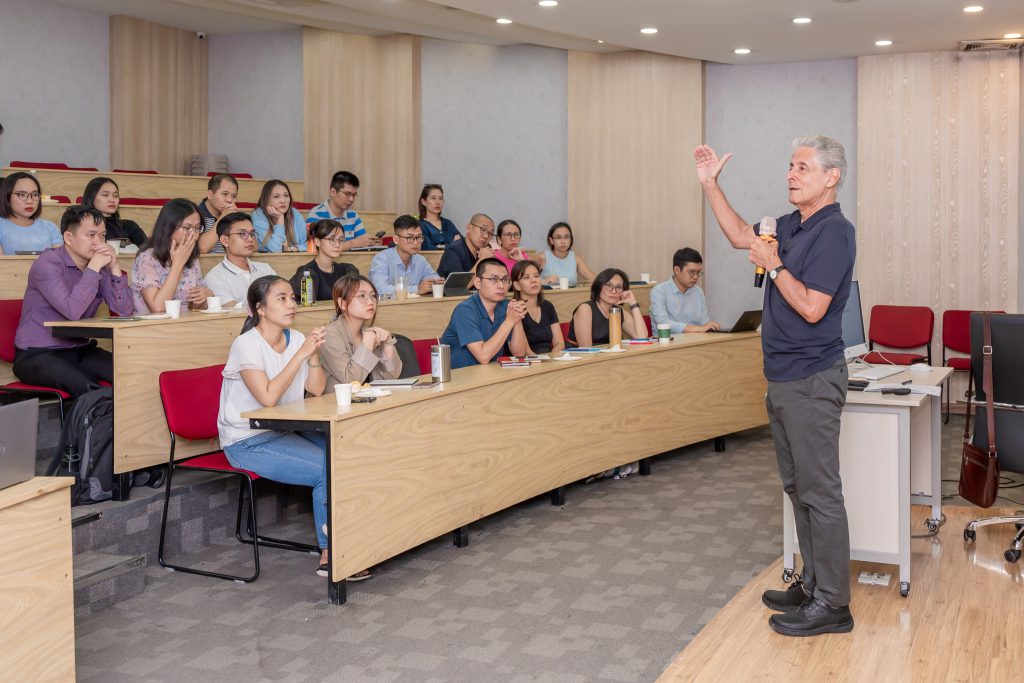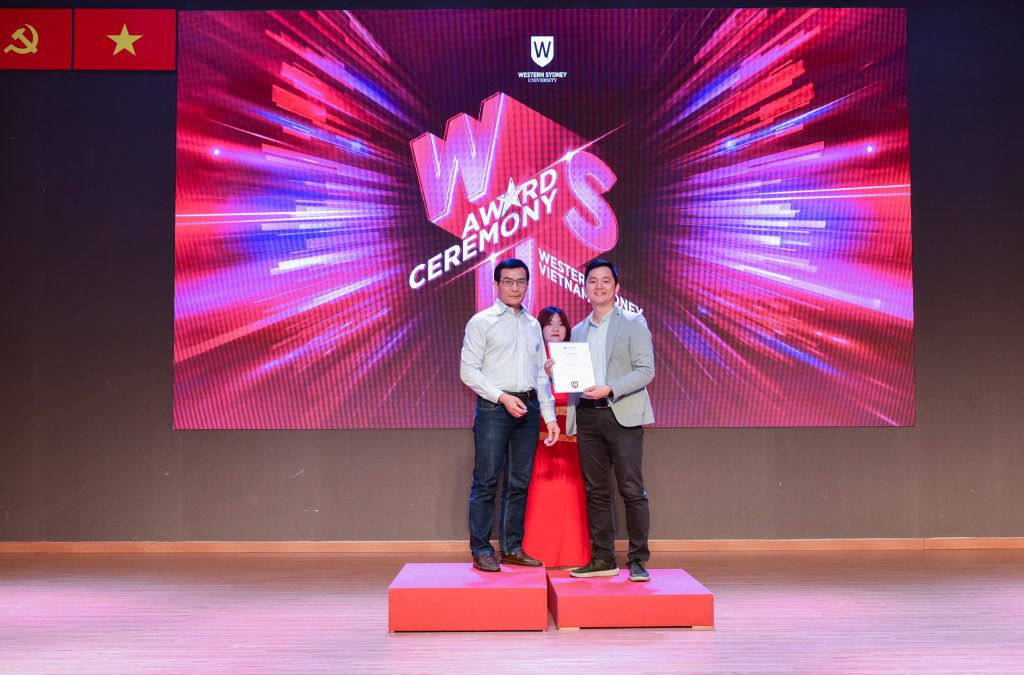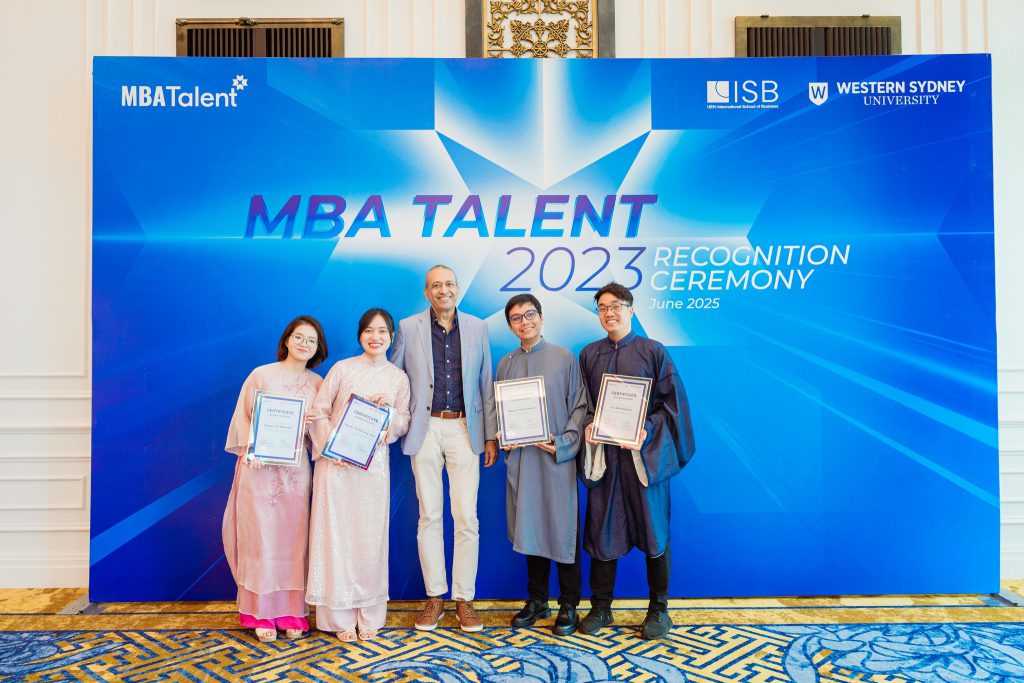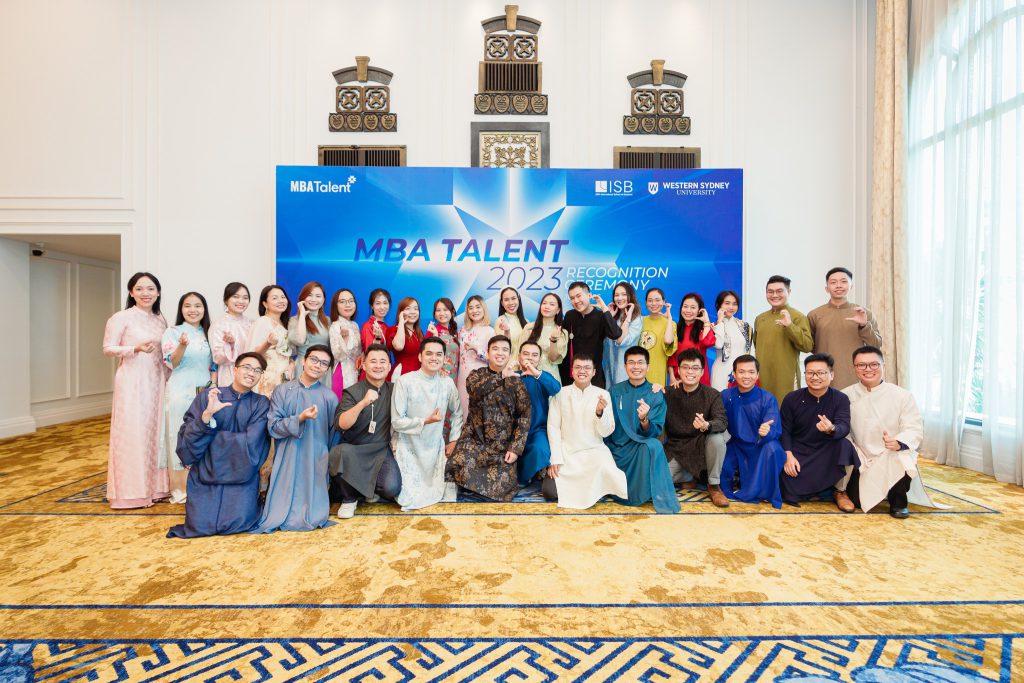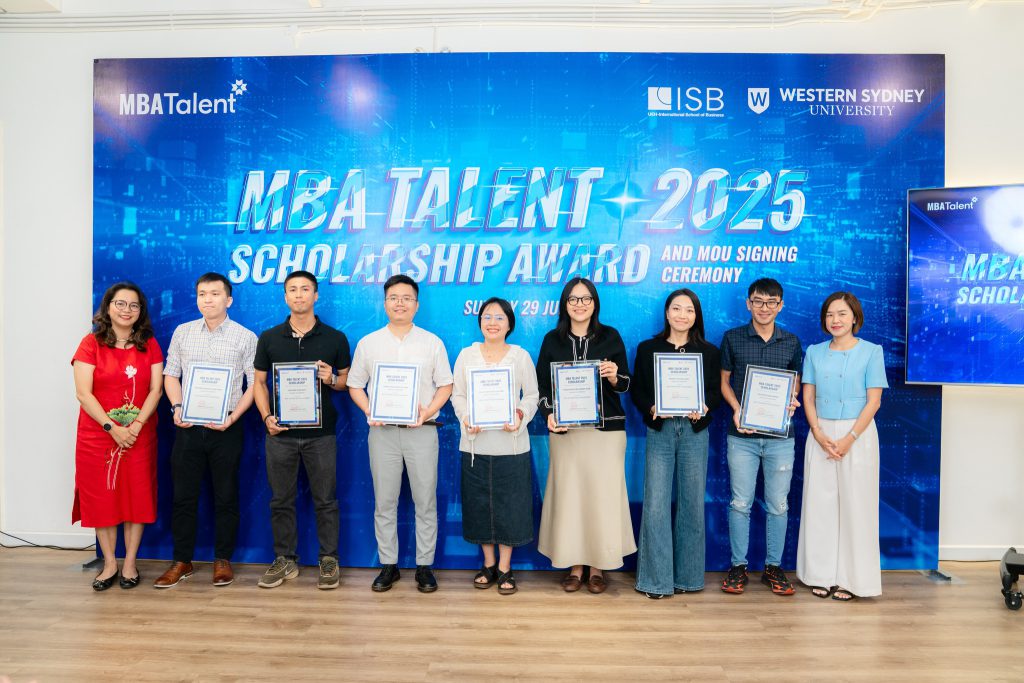MBA Talent Curriculum
MBA Talent
A comprehensive training model designed to develop C-level executives
1. Business knowledge and beyond
MBA Talent equips participants – middle managers with 5-10 years of experience in major corporations – with the most up-to-date knowledge in business. The program not only helps strengthen existing expertise but also broadens deep understanding of all aspects in the modern business environment. Through a combination of in-depth academic study and practical problem-solving under the guidance of business leaders, MBA Talent forms and reinforces participants’ lifelong learning capabilities, helping them adapt flexibly to all fields and positively impact stakeholders.
2. Problem-solving and Decision-making skills
With a unique structure focused on practical application, MBA Talent enhances participants’ problem analysis and decision-making capabilities through modern training methods: simulation games, strategy models, and case studies based on real situations from major businesses in Vietnam and Southeast Asia.
Participants engage in Case Challenges across industry groups, where they have opportunities to apply knowledge learned into practice, systematize their knowledge foundation, and develop core skills from analysis to strategic planning. Notably, direct sharing from senior leaders about contemporary issues provides participants with a more comprehensive perspective when facing challenges in the business environment.
3. Leadership and Management Competence
MBA Talent focuses on cultivating 5 qualities in the modern management competency set for each participant: Strategic Thinking, Collaborative Leadership, Communication, Decision-Making, and Resilience. Regardless of their professional background, all participants will experience exercises and training courses to ensure management capability development conducted by managers with many years of experience. Through Final Challenge 1 and Final Challenge 2, participants challenge themselves in a simulated business environment, helping develop strategic thinking, collaborative leadership ability, and resilience – essential elements of a modern leader.
4. Comprehensive and Professional Leadership
MBA Talent not only trains professionally skilled managers but also instills motivation to create significant changes for organizations and contribute to the sustainable development of society. The program emphasizes a vision beyond personal success, aiming to create sustainable value for the community.
In particular, training sessions on emotional and mental balance (Mindfulness Bootcamp) provide participants with effective methods to face work and life pressures. The program helps develop self-awareness, focus ability, emotional regulation, and authentic communication – creating leaders with powerful presence, maintaining steady spirit in the face of challenges, and making wise decisions in complex environments.

